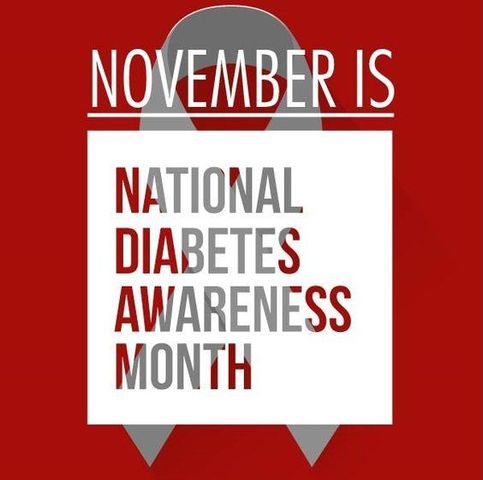Diabetes and Your Smile: Dr. Lunan Celebrates Diabetes Awareness

Did you know that over 29 million people living in the United States have diabetes? That’s almost 10% of our population! And that’s not all. Nearly 2 million new cases are diagnosed each year, and 8 million people living with this condition are unaware that they even have it.
Diabetes affects your body’s ability to process sugar. All food we eat is turned into sugar and used for energy. With Type I diabetes, the body doesn’t make enough insulin, a hormone that carries sugar from the blood to the cells that need it for energy. In Type II diabetes, the body stops responding to insulin. Both types of diabetes result in high blood sugar levels, which can cause problems with one’s eyes, nerves, kidneys, heart and other parts of your body.
So, what does all this have to do with that smile of yours? Many may be surprised to learn about an unexpected complication associated with diabetes – increased prevalence of gum disease. Emerging research suggests that the relationship between serious gum disease and diabetes is two-way. Not only are people with diabetes more susceptible to serious gum disease, but serious gum disease may have the potential to affect blood sugar control and contribute to the progression of diabetes.
You are probably wondering how can you protect your smile. First, it’s important to undrestand the signs of diabetes and the roles they play in your mouth.
The Symptoms of Untreated Diabetes
The warning signs of diabetes affect every part of your body. After a blood test, you may be told by a doctor that you have high blood sugar. You may feel excessively thirsty or have to urinate a lot. Weight loss and fatigue are other common symptoms. Diabetes can also cause you to lose consciousness if your blood sugar falls too low.
If diabetes is left untreated, it can take a toll on your mouth as well. Here’s how:
- You may have less saliva, causing your mouth to fee dry.
- Less saliva means you are more prone to getting cavities.
- Gums may become inflamed and bleed often.
- You may have problems tasting food.
- You may experience delayed wound healing.
- You may be susceptible to infections inside of your mouth.
- For children with diabetes, teeth may erupt earlier than is typical.
Why People with Diabetes Are More Prone to Gum Disease
All people have certain bacteria living in their mouth but their growth is kept under control by the body’s natural defenses and saliva. High glucose levels in the saliva of a diabetic patient facilitate the excessive growth of these bacteria. These bacteria, along with the food we eat, form a film known as plaque on the tooth surfaces. Certain types of plaque cause gum disease, bad breath or cavities. If this bacteria invades your gums, you can end up with periodontal disease. This chronic, inflammatory disease can destroy your gums, the tissues holding your teeth and your bones.
Periodontal disease is the most common dental disease affecting those living with diabetes, in part, because poor blood sugar control increases the risk for gum problems. As with all infections, serious gum disease may cause blood sugar to rise. This makes diabetes harder to control because you are most susceptible to infections and less able to fight the bacteria invading the gums.
How Dr. Lunan Can Help You Fight Diabetes
Regular dental visits with Dr. Lunan’s office are important. Research suggests that treating gum disease can improve blood sugar control in paients living with diabetes and decrease the progression of the disease. Practicing good oral hygiene and having professional cleanings done in Dr. Lunan’s office can help lower your average level of blood sugar.
Your Diabetes Dental Health Action Plan
Teamwork involving self-care and professional care from Dr. Lunan’s office will be beneficial in keeping your smile healthy as well as potentially slowing progression of diabetes. Here are some oral-health related things you can do for optimal wellness:
- Keep Dr. Lunan informed of any changes in your condition and any medications you might be taking.
- Control your blood sugar levels. Use your diabetes-related medications as directed, eating a healthy diet and exercising more can help. Good blood sugar control will also help your body fight and bacterial or fungal infections in your mouth and help relieve dry mouth.
- Avoid smoking.
- If you wear any type of denture, clean it each day.
- Make sure to brush twice a day with a soft brush and floss.
- Use a fluoride toothpaste.
- Watch for any signs of bleeding gums, dry mouth or oral pain.
- Avoid dry mouth by drinking lots of liquids, preferrably water, and chewing sugar-free gum to stimulate saliva.
- See Dr. Lunan for regular checkups every 6 months.
If you do not have an appointment scheduled already why not set one up today? Dr. Lunan is always accepting new patients and we would love to help you and your family protect your smiles. (203) 598-7920
www.middleburydentist.com Check out our reviews.
About the Business
Have a question? Ask the experts!
Send your question

